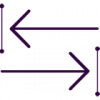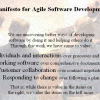 |
Fitting Accessibility Testing into Agile Development The concept of accessibility has been around for more than twenty years, yet it’s only recently that more companies have started including it in their development efforts. Developers and testers are recognizing the advantages of incorporating accessibility techniques into their processes. Here are some of these methods specific to agile software development, including a handy checklist.
|
|
 |
4 Strategies for a Structured QA Process Being a software tester is no longer just about finding bugs. It is about continuous improvement, defining a clear test strategy, and going that extra mile to improve quality. Following a consistent, structured approach to QA will help you acquire more knowledge about the product you are testing, ask questions you otherwise may not have thought of, and become a true owner of quality.
|
|
 |
Endgame Testing: Exploring Your Agile Product End to End The main goal of endgame testing is to test the system end to end from the user's perspective. This should ensure continuity between components developed by different teams, continuity in user experience, and successful integration of new features. Endgame testing will often identify gaps that are difficult to discover inside agile teams, including flows across the product.
|
|
 |
Let the Agile Manifesto Guide Your Software Testing Although its values are commonly associated with agile software development, the Agile Manifesto applies to all people and teams following the agile mindset, including testers. This article examines the four main values of the Agile Manifesto and reveals how they can bring agility to test efforts—improving quality for your team and your customers.
|
|
 |
Get Smart about Your Regression Tests’ Value If you aren’t measuring the coverage your regression tests provide, you may be spending too much time for little benefit. Consider the value of your regression tests as you create and manage them. You need to be smart about the regression tests you maintain in order to gain the maximum value from the work put into creating, running, and analyzing their results.
|
|
 |
Learn Agile Techniques to Become a More Valuable Tester Agile is still on the rise, with many organizations that have been successful at the team level looking to scale their adoption. Consequently, it's important for testers to have practical application of agile techniques. You should know how to create tests to optimize maximum test coverage, have interpersonal skills, and successfully build relationships within the team.
|
|
 |
Defining Acceptance Criteria for Agile Requirements Acceptance criteria can be helpful in expanding on user stories in order to capture requirements for agile projects. However, acceptance criteria should not be a route back to long, detailed documents, and they are not a substitute for a conversation. This article tells you how and when acceptance criteria should be written and employed.
|
|
 |
Guide Your Agile Development with Traceable Tests Testing professionals who are learning about agile often want to know how they can provide traceability among automated tests, features, and bugs and report on their testing progress. Here, Lisa Crispin gives an example of how her previous team worked together to integrate testing with coding and helped everyone see testing progress at a glance.
|
|
 |
Automation Test Suites Are Not God! In today’s age of tight deadlines and accelerating delivery cycles of software, test automation is surely favorable for the world of functional testing and critical to the success of big software development companies. But its various benefits have led to unrealistic expectations from managers and organizations. This article highlights the role and use of automation in an agile context and the irreplaceable importance of manual testing.
|
|
 |
The Test Manager's Survival Guide to Going Agile Joel Bancroft-Connors presents a survival guide for testers going to agile. Joel explains what happened when he had to make the switch from waterfall to agile. Welcome to the world of being an agile manager, in which your team is a top performer, doing more in the same amount of time as before.
|
|

